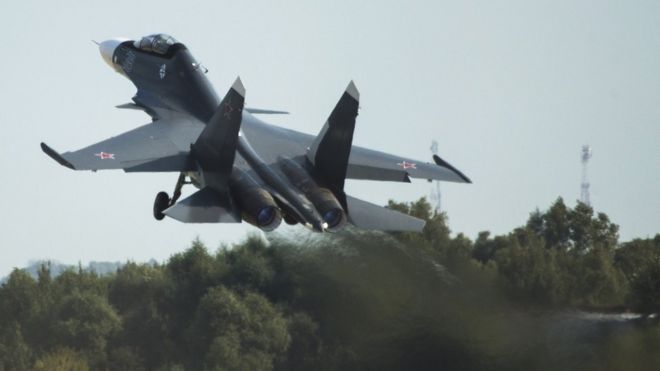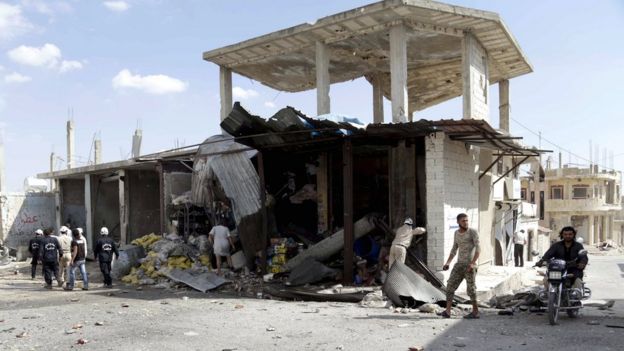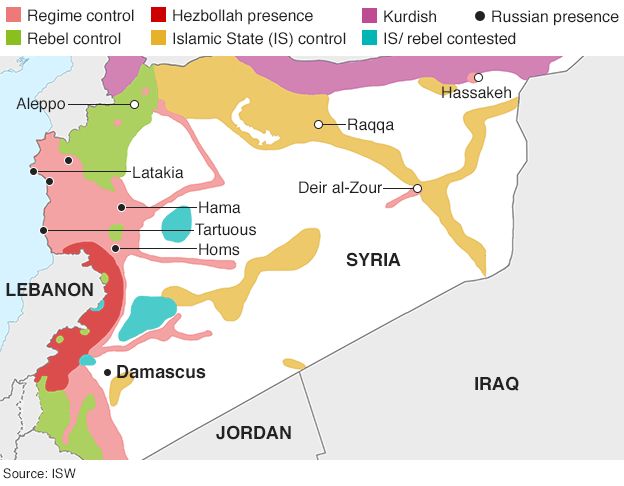
The vote by Russia’s upper house of parliament paves the way for Russian air strikes in Syria
Russia’s upper house of parliament has voted to allow the military to be deployed in Syria, paving the way for air strikes on the militant Islamic State (IS) group.
The vote followed a request from Syria for military aid, senior Kremlin official Sergey Ivanov said.
Mr Ivanov ruled out the use of ground troops and said the step involved only the use of the air force.
President Vladimir Putin called this week for a broad anti-terror coalition.
He told the UN it should be similar to the alliance that opposed Hitler in World War Two.
A US-led coalition has been carrying out air strikes against IS in Syria and Iraq for more than a year.
But Mr Ivanov, the president’s chief-of-staff, said US and French airstrikes in Syria circumvented international law, since they had not been authorised by a UN resolution or by the Syrian government.
President Bashar al-Assad, he said, had officially requested military assistance from Moscow.
“National interest”
Mr Ivanov added that Russia was also seeking to target IS because “thousands” of Russian citizens had joined its ranks and would pose a threat upon their return to Russia.
“This is not about achieving any foreign-policy goals or satisfying any ambitions, which our Western partners often accuse us of. This is exclusively about Russia’s national interests,” he said.
- Who would Russia bomb in Syria?
- Why the UN General Assembly matters
- UK jihadists face UN sanctions
- Viewpoint: West ‘walking into the abyss’
The US and Russian leaders have long differed over the Syrian conflict, which has claimed more than 250,000 lives and forced four million people to flee abroad.
The US insists President Assad must leave office, and President Barack Obama told the United Nations General Assembly (UNGA) there could not be a return to the pre-war status quo “after so much bloodshed”.
But Mr Putin said it was an “enormous mistake” to refuse to co-operate with the Syrian government against militants.
Some Western leaders have recently softened their stance towards the Syrian president, conceding that he might be able to stay in power during a political transition.
Syria’s civil war

What’s the human cost?
More than 250,000 Syrians have been killed and one million injured in four and a half years of armed conflict, which began with anti-government protests before escalating into a full-scale civil war.
And the survivors?
More than 11 million others have been forced from their homes, four million of them abroad, as forces loyal to President Assad and those opposed to his rule battle each other – as well as jihadist militants from IS. Growing numbers of refugees are going to Europe.
How has the world reacted?
Regional and world powers have also been drawn into the conflict. Iran and Russia, along with Lebanon’s Hezbollah movement, are propping up the Alawite-led government. Turkey, Saudi Arabia and Qatar are backing the Sunni-dominated opposition, along with the US, UK and France.
Diplomatic goals behind Putin’s Syria build-up
Migrant crisis: Fleeing life under Islamic State in Syria
The battle for Syria and Iraq in maps

BBC
 Q FM Africa's Modern Radio
Q FM Africa's Modern Radio